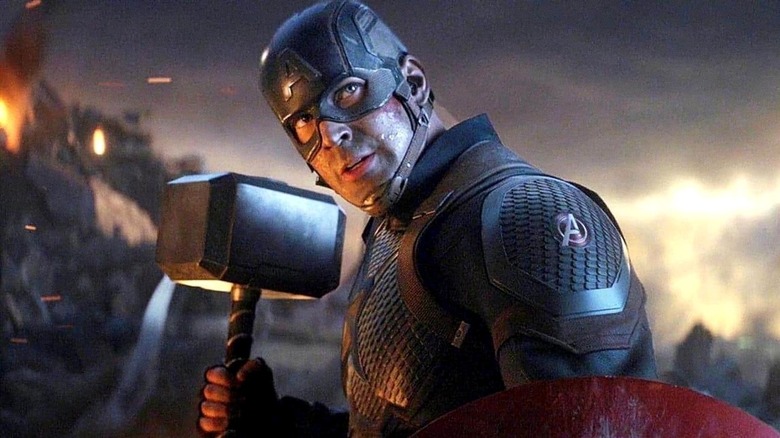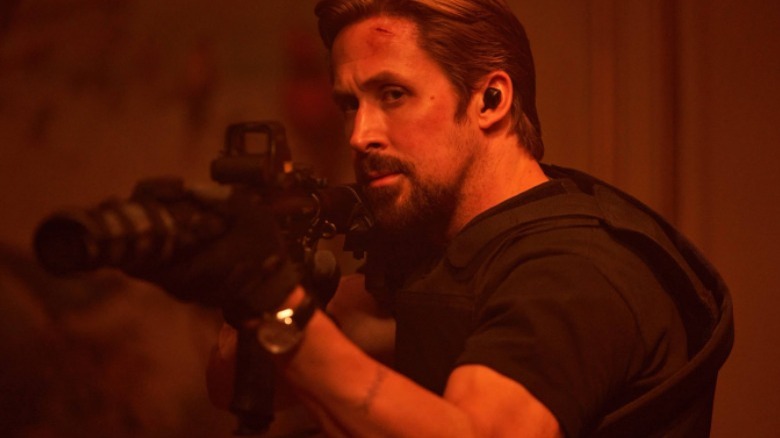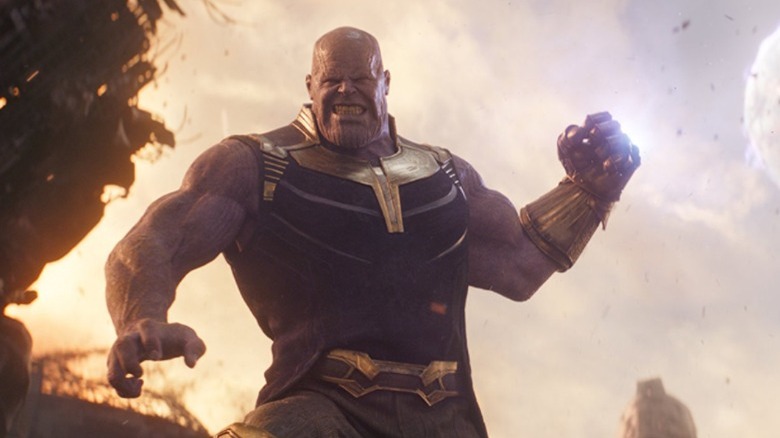Avengers: Endgame Director Joe Russo Is Sick Of The Theatrical Vs. Streaming 'Culture War'
The theatrical landscape has changed over the past two years. The U.S. box office may be starting to bounce back thanks to major blockbusters like "Top Gun: Maverick" and "Spider-Man: No Way Home," but there's no denying that pandemic-era concerns have had a measurable impact on the movie theater experience. Last winter, National Association of Theatre Owners chairman John Fithian told Variety that COVID-19 "was the greatest existential challenge to moviegoing ever."
Of course, the pandemic-era economy has also brought new movie models to the forefront, from the advent of day-and-date streaming to a shift from a 90-day theatrical release model to a swifter 45-day window. The past two years have forced studios to think harder and smarter about how to get movies to viewers at home, and for better or worse, some of the changes seem likely to stick around.
The Russos aren't 'precious' about the theatrical experience
All of these changes have fueled an ongoing conversation about the merits of theaters vs. streaming, and it's a discourse that major filmmakers continue to passionately weigh in on. Directors Joe and Anthony Russo, who have helmed massive box office hits like "Avengers: Endgame" and are about to release "The Gray Man" on Netflix, talked to The Hollywood Reporter about their take on the theater experience.
"What has always excited us most is [the question], how do you move it forward?" Anthony Russo said, noting that he and his brother have a philosophy about "not being precious about theatrical distribution." Russo says that the pair are most interesting in reaching "audiences that haven't been engaged before." In the case of the big-budget action film "The Gray Man," the path to engaging viewers is coming via a hybrid release model involving a limited theatrical release this week, followed by a Netflix debut just one week later.
Joe Russo has an even more specific take on theaters: apparently, he thinks they're elitist:
"It's not anyone's place to reject the next generation's ideas. We're in crisis right now because everyone's at war with each other. It's sad to see, as guys who grew up loving film. A thing to remember, too, is it's an elitist notion to be able to go to a theater. It's very f****** expensive. So, this idea that was created — that we hang on to — that the theater is a sacred space, is bulls***. And it rejects the idea of allowing everyone in under the tent."
Joe Russo's case for digital
While issues of accessibility in theaters have been a major talking point in recent years, these conversations typically focus less on pricing and more on the ways in which the theater experience shuts out patrons with disabilities and fails to accomodate ongoing pandemic concerns.
Russo's assertions about theaters as something less than hallowed ground are especially surprising given how heavily the duo's Marvel projects have relied on moviegoers who show up to theaters. In 2020 he told CinemaBlend's ReelBlend podcast that bringing "Avengers: Endgame," one of the highest-grossing films of all time, to theaters for a global communal experience "was really very touching, and will be the highlight of our careers."
Now, Russo tells THR that digital distribution methods are worthwhile because you "can get 40 stories for the cost of one story," meaning that streamers have a flat rate monthly cost that allows viewers to watch tons of different titles. Russo also notes that "digital distribution has fostered more diversity in the past five years than Hollywood has in a hundred."
Joe Russo says he's "agnostic" about the delivery methods for movies, but also seems pretty clear in his assertions that digital models shouldn't be dismissed, telling THR: "Having some kind of culture war about whether there's value in that or not is f****** bananas to us."


